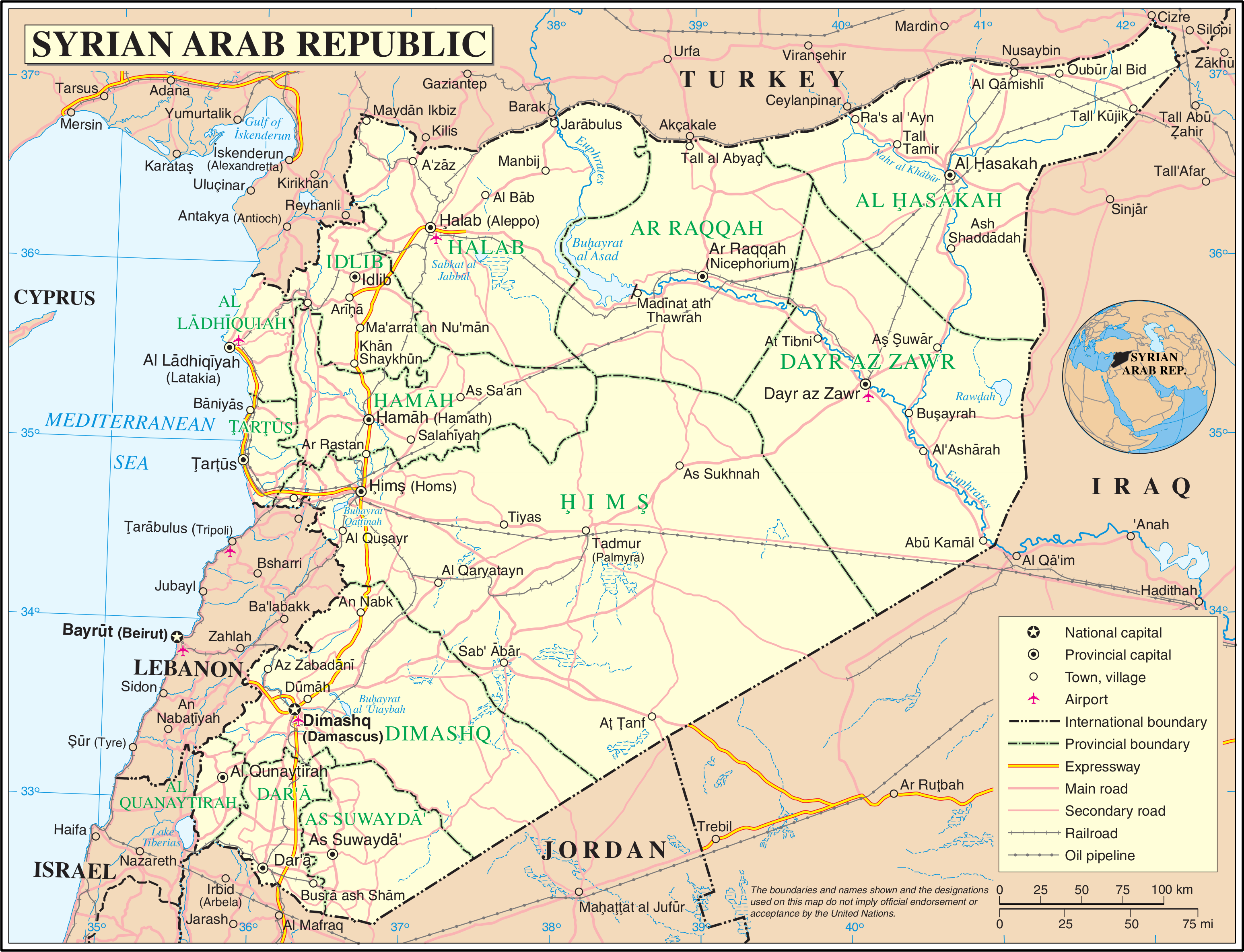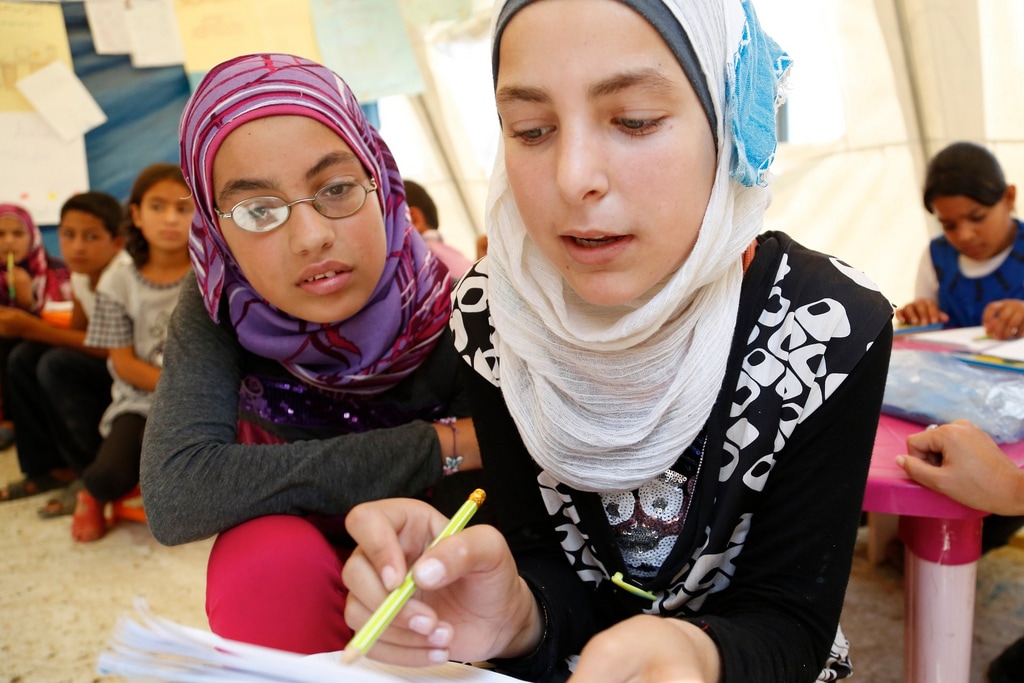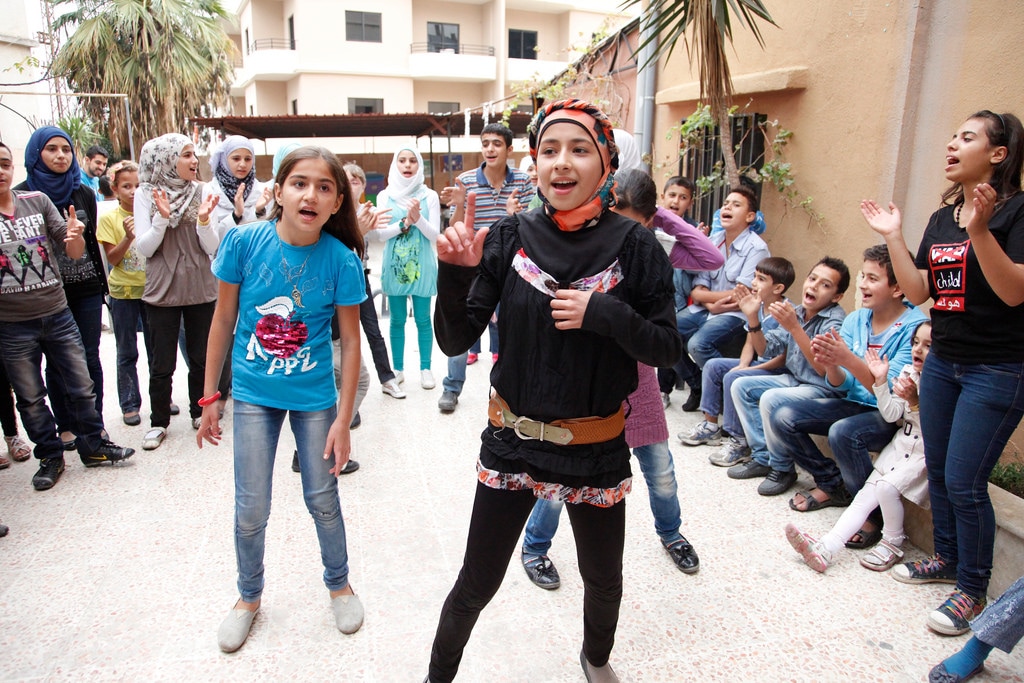What I really wish my teachers could know is:
"I am not a bad girl just because I come from a place with war. I am a good girl.
I want to learn more and more English so I can be a doctor and help people."
- a Syrian student
(Netsch, Terrell, Mayorga, Al Awadh, & Kulia, 2017).
Why did they have to leave home?In March 2011, peaceful pro-Democracy protests broke out in response to the arrest and torture of two teens who painted slogans on a school wall. The government response was violent and the country quickly devolved into a bloody civil war. By 2015, over a quarter of a million Syrians had died in the streets with both sides committing atrocities. More than 4.5 million Syrians have fled to neighboring countries and another 6.5 million have been driven from their homes within the country. A lack of drinking water and poverty add to the humanitarian disaster still going on in Syria (Syria, 2016). Because several terrorist organizations have used this conflict to turn Syria into a recruiting ground, potential refugees from Syria are subject to further security checks beyond those mentioned before (U.S., 2017).
|
Family StructureThe family is central to Syrian culture. Extended families frequently exchange dinner invitations. Arranged marriages have been traditional, but are starting to become less common (Hamidé et al, 2017). Syria is a community-based culture, so close relationships within the family community are important (Merkin & Ramadan, 2010).
SchoolApproximately 80% of Syrians are illiterate (Hamidé et al, 2017). More than two million Syrian students are currently out of school (Syria, 2016). It is very possible that your new Syrian student may have not been in a formalized school in years. Consider that in light of the Syrian cultural tendency to avoid uncertainty (Merkin & Ramadan, 2010). At the same time, Syrian families value education because of religious and cultural reasons Netsch, Terrell, Mayorga, Al Awadh, & Kulia, 2017). Our Syrian students are coming to us in a very compromised state. Lisa Netsch says, "They have seen things that no one should ever see" (Netsch, Terrell, Mayorga, Al Awadh, & Kulia, 2017). Certainty, concrete answers, and routine will be reassuring in your classroom. They will flourish in cooperative rather than competitive environments (Merkin & Ramadan, 2010). In Arab cultures, there are far fewer restrictions at school and parents often just show up to meet with teachers, so do not assume that parents or students understand the American system (Netsch, Terrell, Mayorga, Al Awadh, & Kulia, 2017).
|
"When I don't speak English, I feel so much sad, |
ReligionMost Syrians are devout Muslims. Clothing is widely varied within Syrian culture, so some students may wear the hijab and some may wear more Western styles. Islam is a key part of Syrian identity. Social interactions between different faiths are common, but intermarriage is most often not allowed (Hamidé et al, 2017).
CommerceWhile the government has been focusing on industrializing Syria since 1963, agriculture remains an important source of employment (Hamidé et al, 2017).
|
Communication
The concept of "saving face" is important to Syrians. They will be concerned with their individual face as well as those of their group. When faced with possible loss of face, Syrians may rely on avoidance, evasion, and ambiguity to fend off the loss. Syrians value community and, so, will often avoid individualism and directness in communication as to avoid upsetting the community (Merkin & Ramadan, 2010). The majority of Syrians speak Arabic and some may understand English and French (Hamidé et al, 2017). Arabic has no silent letters, so looking at a word like "listen" may be confusing. Asking many clarifying questions will help you make sure your Syrian students understand the task because, culturally, they are not likely to admit they do not know something. Expect more physical space, less eye contact, and no touching between genders. A lot of U.S. American hand gestures are obscene in Arab cultures. Do not show the bottoms of your feet while sitting. Leaning or stepping away is considered offensive. Tardiness may be a problem because Syrians have a more relaxed relationship with time than U.S. Americans. When introducing your self, shake right hands with the men in order of seniority. Do not talk to a woman prior to an introduction, and then do not shake her hand unless she offers it. Avoid maintained eye contact with Syrian women. As always, be respectful...but ask genuine questions to clarify (Netsch, Terrell, Mayorga, Al Awadh, & Kulia, 2017).
Works Cited
Hamidé, A. R., Hourani, A. H., Smith, C. G., Gadd, C. J., Commins, D. D., Scullard, H. H., Polk, W. R. (n.d.). Syria. Retrieved June 18,
2017, from https://www.britannica.com/place/Syria/The-winds
Merkin, R., & Ramadan, R. (2010). Facework in Syria and the United States: A cross-cultural comparison. International Journal of
Intercultural Relations, 34(6), 661-669. doi:10.1016/j.ijintrel.2010.05.006
Netsch, L., Terrell, H., Mayorga, G., Al Awadh, H., & Kulia, G. (2017, June 20). The cultures of Perry Township. Lecture presented at
Perry Township Professional Development in Southport Middle School, Indianapolis.
Syria: The story of the conflict. (2016, March 11). Retrieved from http://www.bbc.com/news/world-middle-east-26116868
U.S. refugee admissions program FAQs. (2017, January 20). Retrieved from
https://www.state.gov/j/prm/releases/factsheets/2017/266447.htm
Hamidé, A. R., Hourani, A. H., Smith, C. G., Gadd, C. J., Commins, D. D., Scullard, H. H., Polk, W. R. (n.d.). Syria. Retrieved June 18,
2017, from https://www.britannica.com/place/Syria/The-winds
Merkin, R., & Ramadan, R. (2010). Facework in Syria and the United States: A cross-cultural comparison. International Journal of
Intercultural Relations, 34(6), 661-669. doi:10.1016/j.ijintrel.2010.05.006
Netsch, L., Terrell, H., Mayorga, G., Al Awadh, H., & Kulia, G. (2017, June 20). The cultures of Perry Township. Lecture presented at
Perry Township Professional Development in Southport Middle School, Indianapolis.
Syria: The story of the conflict. (2016, March 11). Retrieved from http://www.bbc.com/news/world-middle-east-26116868
U.S. refugee admissions program FAQs. (2017, January 20). Retrieved from
https://www.state.gov/j/prm/releases/factsheets/2017/266447.htm



